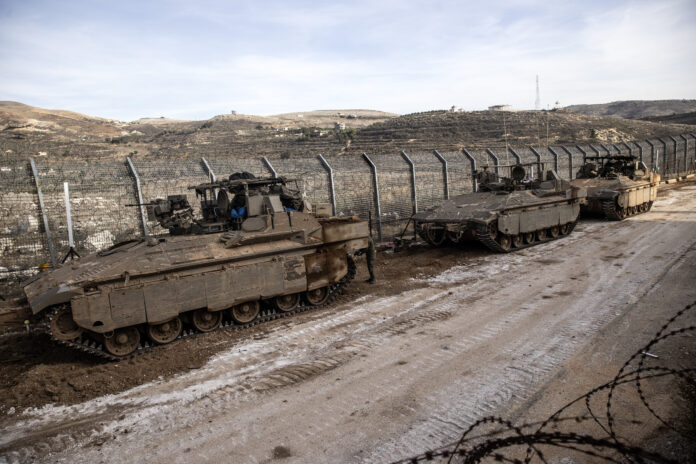
Israel has claimed that it has destroyed 80% of Syria’s military infrastructure following the Assad regime’s collapse.
According to Israeli officials, the mission aimed to prevent advanced weaponry from falling into the hands of what it called “hostile elements.”
Reports indicate that over 350 airstrikes were conducted, targeting air defence systems, ammunition depots and naval vessels.
Locations from Damascus to Tartus were hit, with some reports suggesting the strikes also reached key industrial and logistical sites in Homs and Latakia.
Israeli officials described the campaign as one of their largest and most significant military operations, reflecting both its scale and potential impact.
Speaking after the attacks, Prime Minister Netanyahu said that while Israel would seek to establish relations with the post-Assad regime Syria and not interfere in its internal affairs, “we certainly do intend to do what is necessary to ensure our security” in a confirmation that it would not hesitate to defend itself.
The Prime Minister added: “if this regime allows Iran to reestablish itself in Syria, or allows the transfer of Iranian weapons or any other weapons to Hezbollah, or attacks us, we will respond forcefully and we will exact a heavy price from it…What happenned to the previous regime will also happen to this regime.”
Subscribe to our newsletter and stay updated on the latest news and updates from around the Muslim world!
The strikes coincided with the sudden collapse of the Assad regime over the weekend after opposition forces captured Damascus, leaving a power vacuum in the region. Israel appears to have moved swiftly to capitalise on the instability, expanding its presence in the strategically important Golan Heights.
After the collapse of the Baath regime, Israel pushed beyond the Golan Heights, reportedly seizing territories along the Lebanon-Syria border. By Tuesday, Israeli forces had advanced within 25 kilometers (15.5 miles) of Damascus. In the southwestern Syrian city of Quneitra, which is now occupied, images captured by Anadolu teams revealed Israeli tanks stationed in the streets.
Israeli forces also reportedly seized critical areas within the UN-monitored buffer zone, effectively nullifying a long-standing disengagement agreement that had maintained stability in the region for decades. This unilateral action has raised concerns about the broader geopolitical implications of Israel’s moves and its disregard for international norms.
Criticism has also focused on the humanitarian impact of the strikes, which remain largely unaddressed in Israel’s official narrative. While Israel claims the operation was necessary to secure its borders and neutralize potential threats, many have noted the significant destruction caused to Syria’s already fragile infrastructure. The targeting of key military and logistical facilities has left widespread devastation, the full extent of which is still emerging.
Meanwhile, rebel leader Abu Mohammed al-Jolani has said war against Israel is not on his agenda.
“Syria will be rebuilt… The country is moving towards development and reconstruction. It’s going towards stability,” Jolani told Sky News.
“People are exhausted from war. So the country isn’t ready for another one, and it’s not going to get into another one,” he continued.
Jolani also sought to reassure Western audiences regarding the nature of post-Assad rule in Syria, asserting that “the West has nothing to fear.”
The US lists Hayat Tahrir al-Sham (HTS), the group that Jolani leads and that led the rebel offensive, as a terrorist organisation due to its previous links to Al-Qaeda, which the group now strenuously disavows.




















